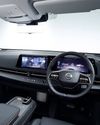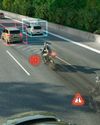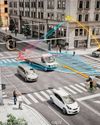Between 2013 to 2016, the global market for electric scooters and motorcycles grew at an average CAGR of around 3.3 %, going from $ 7,800 mn to $ 8,600 mn in that period. Due to the numerous challenges – the weight disadvantage that current batteries have, limited range, inadequate charging infrastructure and slow buyer acceptance – growth has indeed been slow. However, globally, government authorities are now beginning to push hard on promoting electric mobility, which is expected to increase the pace of high-quality battery-powered two wheelers in the near future. Analysts expect the global market for electric two-wheelers to reach the $ 10,000 million mark by 2021. Here, we take a look at the state of existing e-2W tech and possible future directions.

CURRENT SCENARIO
Of the approximately 17 mn PTWs (powered-two-wheelers) sold in India every year, only around 400,000 units are battery-powered – a share of less than 3 %. A large percentage of these are low-powered scooters that are often of dubious quality and questionable longevity. Now, however, given the Indian government’s renewed thrust on e-mobility, the big OEMs – everyone from Hero MotoCorp (which has also made a strategic investment in electric two-wheeler start-up, Ather Energy), Honda, Bajaj, TVS, Mahindra, Yamaha and others are gearing up to produce electric scooters and motorcycles, which should be comparable to IC-engined bikes in terms of power, performance, handling, range, reliability and longevity.
Interestingly enough, electric bikes aren’t an all-new phenomenon. Electric motors are, inherently, much simpler than internal combustion engines and have fewer moving parts. Indeed, in some form or the other, e-bikes have been around for the last 100 years.
With electric motors developing maximum torque from close to zero rpm, electric bikes offer impressive low-rpm acceleration, but challenges come in the form of the range vs speed trade-off. Electric batteries are simply not as efficient as, say, petrol when it comes to storing energy, which is why current electric bikes and scooters are better suited to relatively short-distance travel, at moderate speeds. Yes, current battery-powered electric production bikes can attain very high speeds, but at the expense of riding range, which is not acceptable to many riders. Also, the charging time – anywhere between 2-4 hours for a full charge – is not practical for most riders who’re used to filling up their bike’s petrol tank in a minute or less.
CHALLENGES IN BATTERY DEVELOPMENT
This story is from the {{IssueName}} edition of {{MagazineName}}.
Start your 7-day Magzter GOLD free trial to access thousands of curated premium stories, and 9,000+ magazines and newspapers.
Already a subscriber ? Sign In
This story is from the {{IssueName}} edition of {{MagazineName}}.
Start your 7-day Magzter GOLD free trial to access thousands of curated premium stories, and 9,000+ magazines and newspapers.
Already a subscriber? Sign In

Sound Generation For Enhanced Road Safety
With an ever-increasing number of fully electric and hybrid vehicles entering the market, we are witnessing a change in the acoustic experience in and around the car. The silent nature of the electric powertrain means that other road users miss the familiar acoustic cues that warn them of an approaching vehicle. To remedy this situation, Harman is working on various noise management solutions.

OBJECTIVE ASSESSMENT OF THE SAFETY CONTRIBUTION OF TODAY'S AUTOMOTIVE HEADLAMPS
Good lighting makes a major contribution to road safety. In 2011, the International Commission on Illumination (CIE) presented an evaluation system for headlamps that can objectively assess the quality of illumination and glare limitation. New light sources like LEDs and lighting functions (glare-free high beam, partial high beam) have been available for several years, so that an extension of the proven CIE method is necessary, which takes into account, among other things, changed switch-on and service lives of new lighting functions and represents a generally understandable evaluation system. An evaluation system presented in the following by the Technische Uni versität Darmstadt, which was developed by an encompassing expert commission, is intended to provide representative data and enable an objective evaluation of headlamp performance.

RAPIDO RE-INNOVATES TO CATER TO POST COVID-19 LAST MILE CONNECTIVITY
The rapid pace of urbanisation in the country has witnessed cities expanding and subsuming surrounding villages and smaller towns, evolving into Tier II and III cities.

FUNCTIONAL SAFETY STANDARDS TOP PRIORITY FOR FUTURE AUTOMOTIVE DEPLOYMENT
Increasing levels of electronic content in vehicles result in a large amount of software that is required to run the scenes behind the mechanical aspects of a vehicle. Electronic systems in automobiles are part of every section, from the powertrain to comfort and convenience systems as well as all types of safety equipment. This makes electronics and the software running these systems a critical part of the equation for future mobility solutions. In addition, putting standards in place to measure methods of developing, testing and functioning of such electronic systems also becomes highly relevant.

“BYD'S EV STRATEGY TO ENCOMPASS MOST FORMS OF TRANSPORTATION NEEDS IN INDIA”
The country’s electric vehicle (EV) ecosystem is grappling with a plethora of challenges even as it is striving to wriggle itself out of the ‘nascent stage’ tag. In an exclusive chat with Auto Tech Review, Zhang Jie Ketsu, Executive Director, BYD India shares his perspective on the current EV scenario and how the company intends to progress faster in the Indian automotive industry

SAFETY IN ELECTRIC AND AUTONOMOUS CARS – SIMULATION OF COMPLEX CRASH SCENARIOS
Electric and autonomous vehicles allow for novel seating arrangements and packaging strategies, presenting new safety challenges. Physical crash testing must be supplemented with virtual simulation to ensure vehicle safety on shorter development cycles. With its Simcenter Madymo MBS software, Siemens provides improved runtimes and the Active Human model, enabling accurate and rapid occupant safety analysis in complex crash scenarios.

KIA SONET – A MIGHTY OFFERING IN THE COMPACT SUV SEGMENT
It wouldn't be wrong to say that Kia Motors India has taken the Indian market by storm in less than 12 months of its presence in the market.

NISSAN'S NEW DIRECTION: ARIYA ALL-ELECTRIC
Marking a key milestone in Nissan’s transformation strategy, Ariya ticks a lot of boxes highlighting the strengths of the global automotive giant.

BETTER SAFETY WITH EMERGENCY BRAKE ASSIST FOR MOTORCYCLES
Rear-end collisions with a slower vehicle suddenly cutting into the lane and intersection accidents with cross-traffic are among the most frequent motorcycle accident types. Continental is now developing an emergency brake assist, which detects an imminent collision with a vehicle ahead or with an obstacle, warns the rider and supports him during braking

ADAS WILL SERVE AS CATALYST FOR IMPROVED VEHICLE SAFETY
The automotive industry across the globe is increasingly focussing on safety.